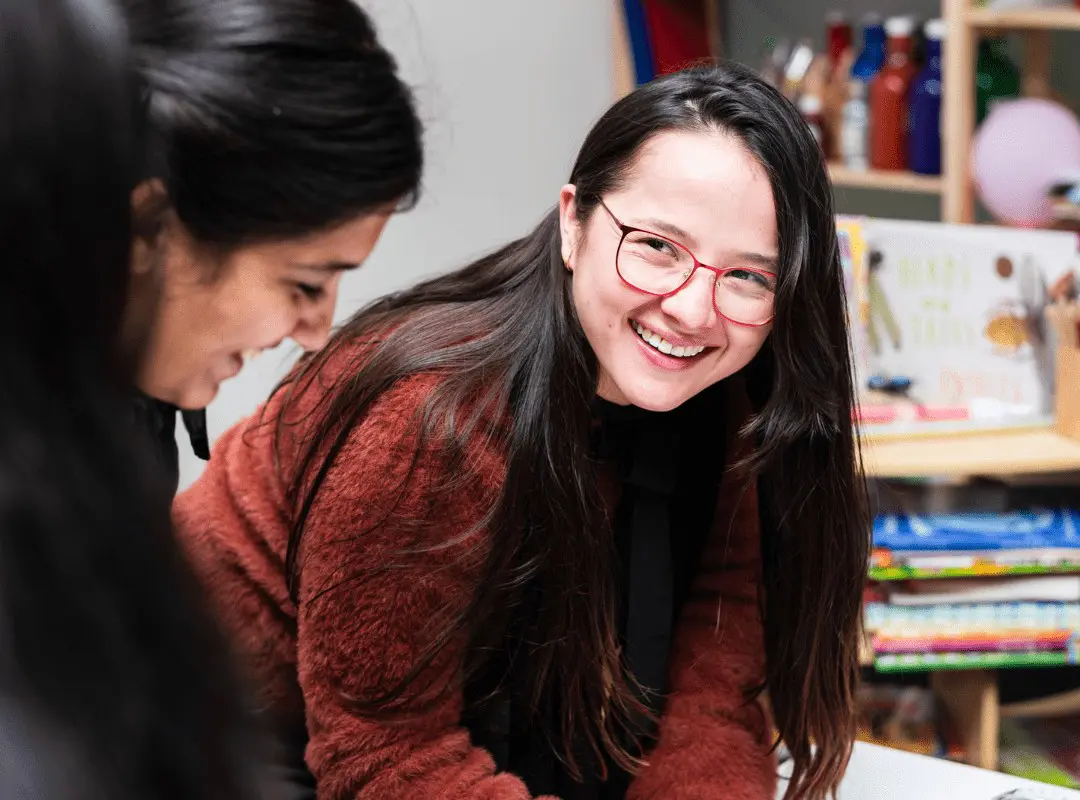Course Overview
Elevate Your Therapeutic Practice. Cultivate the art of counselling and psychotherapy with our Graduate Diploma. Gain practical skills in counselling, psychotherapy, and mental health that can be applied into the workplace upon graduating.
Our Graduate Diploma delves into key therapeutic approaches. You will develop practical skills in client-centered practice to foster a strong therapeutic relationship. You will learn to navigate the complexities of human emotions, identity, and self-concept, enabling you to address clients’ needs effectively.
You will explore mental health concepts, assessment processes, and treatment approaches, and consider the factors that impact a person’s mental wellbeing.
The Graduate Diploma consists of subjects designed to build a strong foundation in therapeutic practice. Upon successful completion, students can further their learning by articulating into the Master of Counselling and Psychotherapy. This course aligns with the professional training standards of the Australian Counselling Association (ACA).
This qualification is FEE-HELP approved for eligible applicants.
Key Information
| Award | Graduate Diploma of Counselling and Psychotherapy |
| Duration | 1 Year Full Time |
| Study Mode | Blended (Online and Face-to-Face) |
| Locations | Adelaide (From T2 onwards) Brisbane (From T2 onwards) Melbourne or Sydney (Intensives) Online |
| Intakes | February, May, September |
| Course Fees | Domestic (FEE-HELP available) International |
Trimester 1, 2026 Applications Extended Due To Popular Demand
Career Opportunities
Graduates may find career path opportunities in:
- Private practice
- Community and mental health organisations
- Trauma and grief support services
- Family and relationship support agencies
- Addiction support agencies
- Welfare agencies

Course Structure
The Graduate Diploma of Counselling and Psychotherapy comprises 8 equally weighted subjects of 6 credit points each (total of 48 credit points) delivered over 8 months – 1 year (depending on admission pathway).
A typical full-time load is eight subjects per year across three trimesters. Variations to study load will be considered on a case-by-case basis, but the maximum number of subjects a student can take under an accelerated (fast-track) load is four subjects per trimester.
Each trimester consists of twelve weeks.
Delivery & Workload
Course delivery for the Graduate Diploma of Counselling and Psychotherapy is a combination of lectures, tutorials, discussions, assessment activities and independent study.
Online delivery involves live online sessions where students engage with lecturers and peers in real-time interactions, closely simulating the dynamics of on-campus learning. Face-to-face delivery includes on-campus intensives spread over the following subjects:
COU502 Foundations of Therapeutic Practice
COU508 Process Experiential Psychotherapy
These intensives are only available at the Melbourne and Sydney campus and will provide students with hands-on skills practice, supervised clinical simulations, and valuable interactions in a face-to-face learning environment.
You should allow a notional 12 hours per week for each subject studied. You should then spend approximately 26 hours per week for self-directed study to complete prescribed readings, practice skills, research, study and complete assessments.
Subjects
Year 1
This subject examines the major paradigms in counselling and psychotherapy, and their theories of therapeutic change. Students will study models from the psychodynamic, humanistic, cognitive-behavioural, constructivist postmodern and transpersonal approaches, examining their underlying theories, therapeutic processes, and techniques. A core focus is the examination of the mechanisms of change within each approach. Students will examine the common factors that underpin effective therapeutic practice while recognising the unique aspects of each approach to facilitate change. In evaluating the strengths and limitations of different therapeutic approaches, students will gain a nuanced understanding of their applicability and limitations in different and diverse contexts.
The subject also explores the integration of different approaches, fostering an appreciation for the potential synergies and challenges that arise from an integrated therapeutic framework. Additionally, students will embark on a journey of self-reflection as they start to develop their own personal approach to counselling and psychotherapy practice, anchored in their unique strengths, values, and therapeutic philosophy.
Subject Code: COU501
Credit Points: 6
Assessments: Online Quiz (30%), Critical Comparison Essay (40%), Reflective Essay (30%)
This subject is designed to develop the skills needed to build a strong therapeutic relationship with clients, apply self-reflective and client-centred practice, and the use of more advanced counselling skills to facilitate change. Through observation, imitation of master practitioners, practice in triads, debriefing and reflecting on practice students will learn to facilitate fundamental counselling skills as well as advanced empathy, attunement, therapeutic presence and the application of other advanced counselling skills.
The relationship between different counselling theories and skills will also be discussed. Students are guided to explore therapeutic presence and engagement as a foundation for their work. The difference between the therapeutic relationship with ‘relational depth’ and the ‘therapeutic alliance’ will also be explored. The central activity is the experiential practice of therapeutic skills in one-to-one therapeutic interactions with lecturers and peers where students will share and work with their own ‘lived experience’ in sessions. At successful completion of this subject, students will have gained a suite of holistic counselling skills to facilitate supportive counselling and a strong foundation for the specialised practice skills that follow in the Graduate Diploma and Masters Degree.
Subject Code: COU502
Credit Points: 6
Assessments: Triad Participation & Skills Demonstration (30%), Skills Demonstration & Self-Evaluation (50%), Peer Observation & Reflection (20%)
This subject is designed to foster awareness and understanding of ethical issues fundamental to ethical and culturally sensitive counselling practice. Students will gain knowledge of the principles, frameworks and approaches that can guide ethical decision making, including legislation and codes of conduct within the Australian professional landscape. The subject emphasises the importance of understanding ethical principles from a range of philosophical positions, such as relational ethics, ethics of caring, and virtue-based ethics. Students will be challenged to integrate these ethical principles with codes of ethics to address ethical dilemmas. Students will also acquire the skills to apply ethical principles, codes, and frameworks to propose ethical and culturally sensitive solutions to common scenarios encountered in clinical practice, using contemporary case scenarios as a basis for analysis. The subject also encourages critical reflection on the connections and potential tensions between their own personal and professional values and how these may influence their behaviour, practice and decision making.
Subject Code: COU503
Credit Points: 6
Assessments: Case Scenario Logbook (30%), Case Analysis Report (40%), Reflective Essay (30%)
This subject offers an advanced exploration of human development across the lifespan through the developmental perspective. Grounded in developmental theories, contemporary research, and the developmental stages from prenatal to late adulthood, students will examine the biological, familial, psychosocial, and environmental factors that shape optimal human functioning. Central to this exploration is the application of this knowledge to therapeutic practice, ensuring that students can draw upon these insights in real-world settings to foster resilience and facilitate personal growth in their clients. Beyond theoretical understanding, students will engage in self-reflection to comprehend the impact of their own developmental journey on both their personal growth and their professional practice.
Subject Code: COU504
Credit Points: 6
Assessments: Academic Poster (30%), Case Analysis Essay (40%), Reflective Essay (30%)
This subject is an exploration of the complexities of mental health and wellbeing. It examines the core concepts of mental health, and different theoretical perspectives of mental health conditions, assessment processes, diagnostic systems, and treatments. Students will learn to identify and interpret the indications of common mental health presentations, enhancing their ability to effectively engage with multidisciplinary mental health teams.
The subject emphasises the evaluation of evidence-based treatment approaches, and critical analysis of the diagnostic systems approach and the sociopolitical influences on mental health care. Myths and stigma associated to mental health are examined, exploring the influence of cultural perceptions on shaping mental health experiences and the integration of Indigenous healing principles in modern mental health care. This reflective exploration of mental health equips students to better understand client experiences and challenges, enriching their professional practice and enhancing their empathic capacities.
Subject Code: COU505
Credit Points: 6
Assessments: Online Examination (20%), Group Digital Presentation (40%), Case Study Analysis (40%)
This subject introduces students to research and theory in the study of emotion, affectivity, and the development of self. Students will study how emotions play a crucial role in shaping one’s identity and self-concept. Students will consider the role that emotion and affect has in the development towards a fully functioning person and how faulty unconscious emotion processing can interfere with the development of the self.
The focus of the subject will be an exploration of historical aspects, neurodevelopmental perspectives, contemporary emotion theory, emotion schematic memory structures, the development of social emotions, emotion regulation and psychopathologies in emotional development. Students will examine the development of internal working models, which serve as underlying mechanisms for behavioural patterns. They will also gain insight into how psychotherapists identify and address emotions and affective states. Additionally, students will explore psychotherapeutic approaches that aim to address emotional experience and emotion processing difficulties with the goal of facilitating therapeutic change.
Subject Code: COU506
Credit Points: 6
Assessments: Tree Diagram (25%), Case Analysis Report (30%), Critical Analysis Essay (45%)
This subject plays a central role in the course, serving as the integrative hub that connects the diverse perspectives of philosophy, cognitive science, phenomenology, neuroscience, and psychotherapy. It offers an interdisciplinary exploration of the intricate concept of the mind, providing students with a nuanced understanding of the nature of mind and its pivotal role in human cognition, consciousness, and behaviour. As students dissect topics ranging from embodied minds and the intricacies of perception to information processing, intentionality, and self-awareness, the subject lays the groundwork for navigating the complexities in mental health. Through a thoughtful exploration of theories and therapeutic approaches, students will further their knowledge and clinical skills to guide clients toward positive transformation and enhanced mental wellbeing. The subject serves as an essential bridge between theory and practice, supporting students throughout their learning journey in this course.
Subject Code: COU507
Credit Points: 6
Assessments: Annotated Bibliography (30%), Case Analysis Report (40%), Integrative Reflection Essay (30%)
This subject introduces an advanced approach to therapy that focuses on a person’s inner experiences, thoughts, and emotions. The subject highlights the principle that deeper levels of inner experiencing and emotion processing pave the way for cognitive processing.
Students will experience how thought and emotion and inner experience work in tandem in the process of change, human growth and problem-solving. Through observation and practical triad work, students will apply the experiencing scale to identify levels of inner experience. They will also apply techniques that help clients to increase their access to self-compassion and personal agency by exploring their immediate feelings, identifying core emotions, and dealing with unresolved, unexpressed, and difficult emotion. Students will be introduced to experiential tools such as multiple chairs and imagery to allow clients to work with inner experience. Therapeutic techniques to recognise and understand personal narratives will also be explored, including identifying unproductive stories, and recurring patterns, and bringing these stories into the present. At the completion of this subject, students will have acquired essential knowledge and skills for working holistically with a client.
Subject Code: COU508
Credit Points: 6
Assessments: Case Study Analysis Report (20%), Annotated Transcript Analysis (45%), Academic Essay (35%)

Recognition of Prior Learning
At Ikon, your past studies or work experience can be acknowledged through Recognition of Prior Learning (RPL) or Credit Transfer. RPL evaluates your previous skills and experience against the learning outcomes of Ikon subjects, potentially exempting you from studying certain subjects. Credit Transfer allows your previous studies to contribute towards your qualification, granting credits based on matched content and learning outcomes between equivalent qualifications. These pathways could help you to fast track your qualification, reducing study time and tuition fees. The maximum number of subjects for which credit may be granted is 50% of the total award credit points.
Exit Pathways
Students enrolled into the Graduate Diploma of Counselling and Psychotherapy may exit with a Graduate Certificate in Counselling if they have successfully completed the subjects listed below.
COU501 Models of Therapeutic Practice
COU502 Foundations of Therapeutic Practice
COU503 Ethics, Diversity and Practice
COU504 Human Development
Exit Point – Graduate Certificate in Counselling
COU505 Understanding Mental Health
COU506 Emotion, Affect and Self in Psychotherapy
COU507 Unravelling the Concept of Mind
COU508 Process Experiential Psychotherapy
Graduate Diploma of Counselling and Psychotherapy

Entry Requirements
We welcome students from all circumstances and academic backgrounds to apply for this course.
Choose the admission pathway that is most relevant to your educational background.
Qualifications & Prior Learning
English Language Proficiency
Additional Admissions Requirements
The course design provides four admission pathways with progression dependent on the applicant’s highest completed prior qualification.
- Admission Pathway 1 (Undergraduate Degree in Any Discipline): Applicants who have successfully completed a Bachelor Degree (or equivalent) in any discipline will commence with the first four subjects that make up the nested Graduate Certificate to obtain the fundamental knowledge and skills that underpins counselling and therapeutic practice.
- Admission Pathway 2 (Undergraduate Degree in Counselling or Psychotherapy): Applicants who have successfully completed a Bachelor Degree in counselling or psychotherapy may be eligible for credit via Advanced Standing for the first four fundamental subjects in the nested Graduate Certificate. Applicants must demonstrate equivalent knowledge and skills acquired through prior learning via detailed mapping and documentary evidence. Eligibility will be based on an assessment of prior learning against discipline equivalence, content, and learning outcomes. Course duration 1.5 years FT.
- Admission Pathway 3 (Specialist Psychotherapy Training): Applicants who have completed non-AQF accredited specialist psychotherapy training at a level and depth equivalent to a Bachelor Degree, such as a PACFA Accredited Specialist Psychotherapy Course, may be eligible for credit via Advanced Standing for the first four subjects in the Graduate Certificate. Admission will be considered on a case-by-case basis and applicants may receive an amended offer to the Graduate Certificate in Counselling.
- Admission Pathway 4 (Professional Experience): Applicants who do not hold a Bachelor Degree but have at least five years FTE experience as a counsellor, psychotherapist or psychoanalyst may be eligible for admission based on their professional experience. Students would commence with the first four fundamental subjects to ensure they have the academic preparation and foundation necessary to succeed in the course. Admission will be considered on a case-by-case basis by the Head of School (or nominee) to determine the applicant’s ability to meet the educational demands of the course.
Applicants with only previous vocational training qualifications, who do not also have ≥5 years FTE professional experience as a counsellor, psychotherapist or psychoanalyst, are not eligible for admission.
Applicants with only recent senior secondary education are not eligible for admission.
All students need appropriate English language skills to participate and complete the requirements of their course of study. Applicants whose first language is not English must evidence they meet the minimum English proficiency requirements for admission. English proficiency can be evidenced by one of the following:
- Undergraduate degree or postgraduate award where English was the language of instruction; or
- An English language proficiency test achieving an IELTS Academic Overall Score of 6.5 (or equivalent) with Speaking no less than 6.5 and Listening, Writing and Reading no less than 6.0.
Applicants seeking admission based on prior qualifications must provide certified academic transcripts of their completed qualifications, and a completed admission questionnaire.
Applicants seeking admission based on professional experience must provide a curriculum vitae clearly detailing their roles, duties and duration of positions, a statement of service on employer letterhead (or accountant or solicitor if self-employed), and a completed admission questionnaire.
All applicants should read the course inherent requirements to ensure they are able to meet them.
Applicants may be asked to participate in an interview to determine suitability for the program.
Find Out More!
Complete the form below to download our course brochure and find out more about the Graduate Diploma of Counselling and Psychotherapy.

